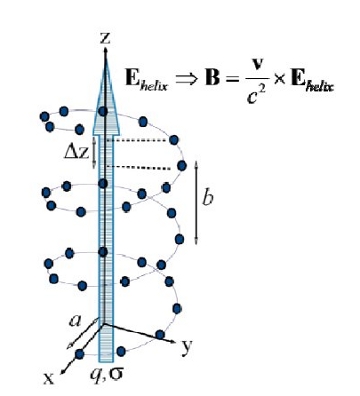Highly spin-selective transport of electrons through a helically shaped electrostatic potential is demonstrated in the frame of a minimal model approach. The effect is significant even for weak spin-orbit coupling. Two main factors determine the selectivity: an unconventional Rashba-like spin-orbit interaction, reflecting the helical symmetry of the system, and a weakly dispersive electronic band of the helical system. The weak electronic coupling, associated with the small dispersion, leads to a low mobility of the charges in the system and allows even weak spin-orbit interactions to be effective. The results are expected to be generic for chiral molecular systems displaying low spin-orbit coupling and low conductivity.

Highly spin-selective transport of electrons through a helically shaped electrostatic potential is demonstrated in the frame of a minimal model approach. The effect is significant even for weak spin-orbit coupling. Two main factors determine the selectivity: an unconventional Rashba-like spin-orbit interaction, reflecting the helical symmetry of the system, and a weakly dispersive electronic band of the helical system. The weak electronic coupling, associated with the small dispersion, leads to a low mobility of the charges in the system and allows even weak spin-orbit interactions to be effective. The results are expected to be generic for chiral molecular systems displaying low spin-orbit coupling and low conductivity.
